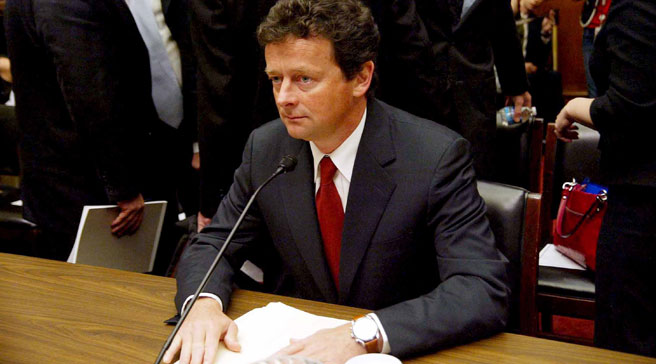Why do we find it so hard to say sorry?
BP chief Tony Hayward's failure to take responsibility has earned him most-hated status

In our culture of corporate complacency, we increasingly rely on excuses and spin to get us out of trouble. The good old-fashioned apology has been replaced by self-justifying half-truths that we end up believing ourselves.
So what happened to saying sorry? Tony Hayward, boss of BP, is currently the USA’s number one hate figure, his apparent insouciance the cause of increasing tension between the UK and America. Every time he is called to account for suspected cost-cutting and safety lapses, he appears complacent and self-satisfied. BP’s lawyers have apparently coached him in not promising more than they intend to deliver.
The result is far short of the required apology.
Yesterday, before the committee of the US Congress, Hayward claimed to have 'no prior knowledge' of or involvement with the decisions affecting the oil well that exploded. But as CEO, surely he takes responsibility for anything that happens on his watch?
In their book ‘Mistakes Were Made (But Not By Me): Why We Justify Foolish Beliefs, Bad Decisions And Hurtful Acts’ (Pinter & Martin), social psychologists Carol Tavris and Elliot Aronson explain the origins of such self-justifying statements. They describe the ‘excruciating dissonance’ that results when we do something that conflicts with our view of ourselves, causing a clash in our self-perception. For example, ‘I am the clever and charismatic head of this company’…AND ‘I am responsible for an ecological and humanitarian disaster.’ To hold both of these conflicting views requires powerful self-justification — ‘I wasn’t in charge of that part, I wasn’t informed about that operation. It’s not my fault.’
This self-justification is our instinctive reaction to the tension of dissonance.
But it doesn’t fool all of the people. In the case of Tony Hayward, it makes people (not only the US Congress committee) very angry. It also requires a lot of effort. ‘To reduce dissonance,’ write Tavris and Aronson, ‘most of us put an enormous amount of mental and physical energy into protecting ourselves and propping up our self-esteem.’
And for what? A well-timed and whole-hearted apology can make a huge difference to public perception (remember Oprah apologising for defending James Frey?). BP’s lawyers may be trying to limit their liability, but they’re not doing anything for the company’s public image. And for now, Tony Hayward’s evasiveness continues to earn him most hated status.





